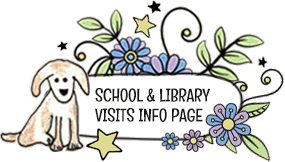National Poetry Month 2017 has flown by in a blur of words. I’ve asked poet and author Holly Thompson to close out my NPM17 series of interviews with verse novelists. You’ll find links to each interview at the bottom of this post.
Holly has published many books–including a picture book, MG, YA, and new adult novels–but two of my favorite are her verse novels ORCHARDS and THE LANGUAGE INSIDE. We met years ago at an SCBWI conference and connected over poetry (what else?!) As I was working on my own novel-in-verse, Holly read early drafts. I am grateful for her feedback and her willingness to mentor a pre-published author.
Happy National Poetry Month, Holly!
Tell us about your most recent verse novel. What is it about the story and characters that led you to write the book as poetry?
My third and most recent verse novel Falling into the Dragon’s Mouth confronts school bullying in Japan. As with my verse novel Orchards, and sections of The Language Inside, Falling into the Dragon’s Mouth is set in Japan. Bullying, or ijime, is a chronic social problem in Japan. Incidents of bullying and intimidation are on the rise in U.S. schools as well, but in Japanese schools, bullying tends to be a group phenomenon. My children’s experiences as outsiders in Japanese schools and the experiences and struggles of many other intercultural children I have come to know in my years of living in Japan led me to write this story. Main character Jason, a non-Japanese boy attending a Japanese school, has so much bottled up inside him as he copes with bullying—yet he confides to no one. Writing this story in a spare free verse style enabled me to tap into his struggles—and his valiant efforts to overcome his problems.
Does your story spin on one central event and how it impacts the characters in the book? If so, how did you incorporate poetic elements such as metaphor and symbolism to show the echoes of that event through the novel? Would you share an example of this from your book?
In Falling into the Dragon’s Mouth, Jason is an outsider and a year older than his classmates, and when the classroom han groups are changed, Jason finds himself placed with five of the most aggressive members of the class. He knows he will be with seated with this han for many weeks—in homeroom for most classes, at lunch, and during unsupervised school cleaning periods. His friends at school are sympathetic but remain passive bystanders, urging Jason to just go along with the bullies and not make waves. Jason tries to find confidence and balance through his practice of the martial art aikido as aggressions escalate.
The following are two of five “page poems” in an early chapter of Falling into the Dragon’s Mouth called “Centering.”
_____
at the dojo
you bow to enter
and on the mats
you kneel, you meditate
you hold your one-point center
even when Yamada-sensei
pushes your forehead to test you
you chant, you stretch
you roll
across
the mats
forward
and back
you bow to your opponent
you practice holds and moves
you take your opponent’s energy
and turn it to overcome him
or her
and what matters most
through every move and fall
is you keep firm
you stay in control
you hold your center
_____
in aikido
we practice protecting
we imagine attackers
we use mind and body together
our ki energy
to keep calm
perform our best
so we can dare to face
an enemy of millions
but today I picture real attackers
so while entering and turning
and receiving strikes
I’m thinking of
Shunta
Gō
Yuki
Naho
and Mika
I focus hard
make no mistakes
calm and action
as one
_____
Have you ever written a full or partial draft of one of your verse novels in prose (or vice versa), only to decide to switch? How did you go about making that change? What were some of your clues that you needed to rethink the form?
Before setting out to complete a full draft, I always play with scenes in both prose and poetry, and listen to the narrative voice closely to test and confirm that verse is the appropriate form for the novel. One scene of Falling into the Dragon’s Mouth had first existed as a prose short story, but that storytelling mode felt too distant. For a character enduring ongoing harassment in a society like Japan that emphasizes conformity and where the standard survival mechanism is to do anything to blend in and gaman—persevere stoically, I felt that free verse enabled an interiority that was critical in this book. In verse, you can pare the language down to reach the core of an episode, which can make the experience of a scene more visceral. With this interiority, and with pages that don’t overwhelm with details, verse can also enable readers to enter a world they may not know and to experience a situation in a first-hand sort of way.
I see a similarity between the poems in novels-in-verse and dramatic monologues. Each poem in a verse novel has a character communicating his or her emotions and observations. There is often a realization or shift in thinking that happens in both monologues and in a verse novel’s poems. What do you think about the overlap between a speech for the stage and a poem in a verse novel?
In my three verse novels so far, I’ve written in chapter poems that are composed of “page poems” or “sub poems.” These page poems are not titled, and rarely can they stand alone, but they are broken deliberately for page turns that affect the pacing in the novel. As a result, some chapters may resemble dramatic monologues. Or, a series of page poems from a subplot that spans multiple chapters may cumulatively serve as a dramatic monologue. I was pleased to learn that students sometimes perform dramatic interpretations for speech contests using my excerpts from my verse novels.
Most of the middle grade and YA verse novels I have read are contemporary or historical. I’d love to see a fantasy or science fiction novel-in-verse for kids. Do you think the form is flexible enough to stretch into other genres of fiction? Why or why not?
I think any genre of story can be told with poetry. There are so many ways to write poetry, and limitless possibilities for using poetry to propel a narrative, so I think we’ll be seeing many style, structural and genre variations in verse novels in the future. Why not a fantasy novel? Why not sci-fi? Poetry can do anything, and verse novels are a completely malleable form. I look forward to future verse novels!
I agree. With poetry, anything is possible. Thank for visiting, Holly!
 Holly Thompson (www.hatbooks.com) is a longtime resident of Japan and author of the verse novels Falling into the Dragon’s Mouth, The Language Inside, and Orchards. She edited Tomo: Friendship Through Fiction—An Anthology of Japan Teen Stories, and she writes poetry, fiction and nonfiction for children, teens and adults and teaches writing in Japan, the U.S. and internationally.
Holly Thompson (www.hatbooks.com) is a longtime resident of Japan and author of the verse novels Falling into the Dragon’s Mouth, The Language Inside, and Orchards. She edited Tomo: Friendship Through Fiction—An Anthology of Japan Teen Stories, and she writes poetry, fiction and nonfiction for children, teens and adults and teaches writing in Japan, the U.S. and internationally.
I hope you’ve enjoyed this series of interviews with verse novelists. Thanks to all of the authors who took the time to share insights in their writing.
Here is the full list of posts:
4/3 Jeannine Atkins, STONE MIRRORS: The Sculpture and Silence of Edmonia Lewis (Find the post here.)
4/6 Caroline Starr Rose, BLUE BIRDS (Find the post here.)
4/10 Leza Lowitz, UP FROM THE SEA (Find the post here.)
4/13 Shari Green, MACY McMILLAN AND THE RAINBOW GODDESS (Find the post here.)
4/17 Annie Donwerth-Chikamatsu, SOMEWHERE AMONG (Find the post here.)
4/20 Ellie Terry, FORGET ME NOT (Find the post here.)
4/24 Margarita Engle, MORNING STAR HORSE and FOREST WORLD (Find the post here.)
4/25 Tamera Will Wissinger, GONE CAMPING (Find the post here.)
4/27 Debut novelist Amanda Rawson-Hill (Find the post here.)
4/30 Holly Thompson, FALLING INTO THE DRAGON’S MOUTH (Find the post here.)
You can find a list of National Poetry Month blog projects at Jama’s Alphabet Soup. And check out this great list of recommended MG verse novels from educator Cassie Thomas at the blog Teachers Who Read.







I enjoyed Falling Into The Dragon’s Mouth by Holly very much, did not realize she lives in Japan and draws at least some of this story from personal experiences. Jason’s story kept me tense nearly the whole book, and it made me wonder just how much students do hold in what is happening to them. I wish all teachers could read this, and then read it with their students that might break a barrier or two. Thanks, Laura and Holly, too.
I have thoroughly enjoyed this poet interview series and have learned something from each. The idea of writing a verse novel is overwhelming….there is so much to think about and to write in far less space. The thoughts of the authors on how they approached and carried out their novels is fascinating and very instructive. This entire series could be a learning tool for a class. My favorite line of this interview with Holly is this: ” poems in novels-in-verse and dramatic monologues. ” I can use her interpretation as a possible approach to things I”m working on. Thanks so much, Laura!
[…] 4/30 Holly Thompson, FALLING INTO THE DRAGON’S MOUTH (Find the post here.) […]
[…] 4/30 Holly Thompson, FALLING INTO THE DRAGON’S MOUTH (Find the post here.) […]